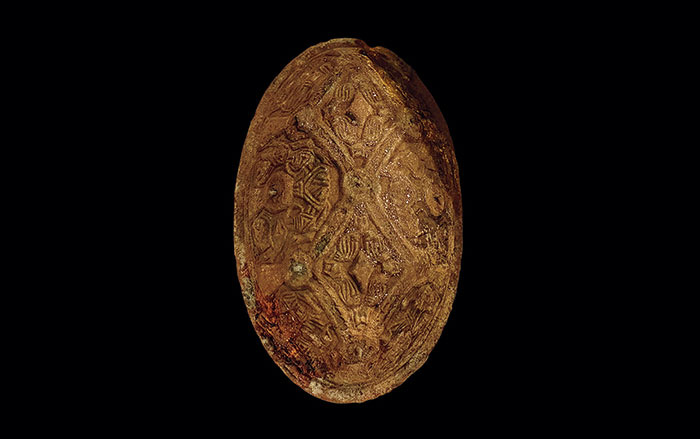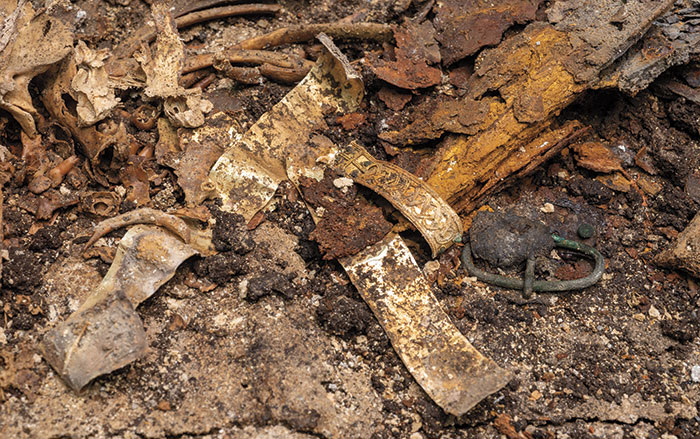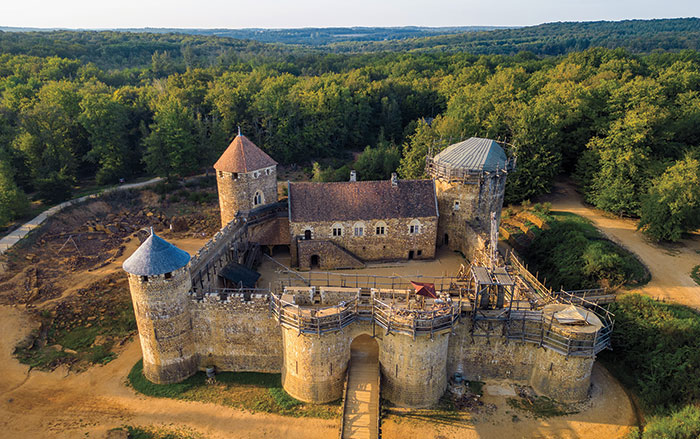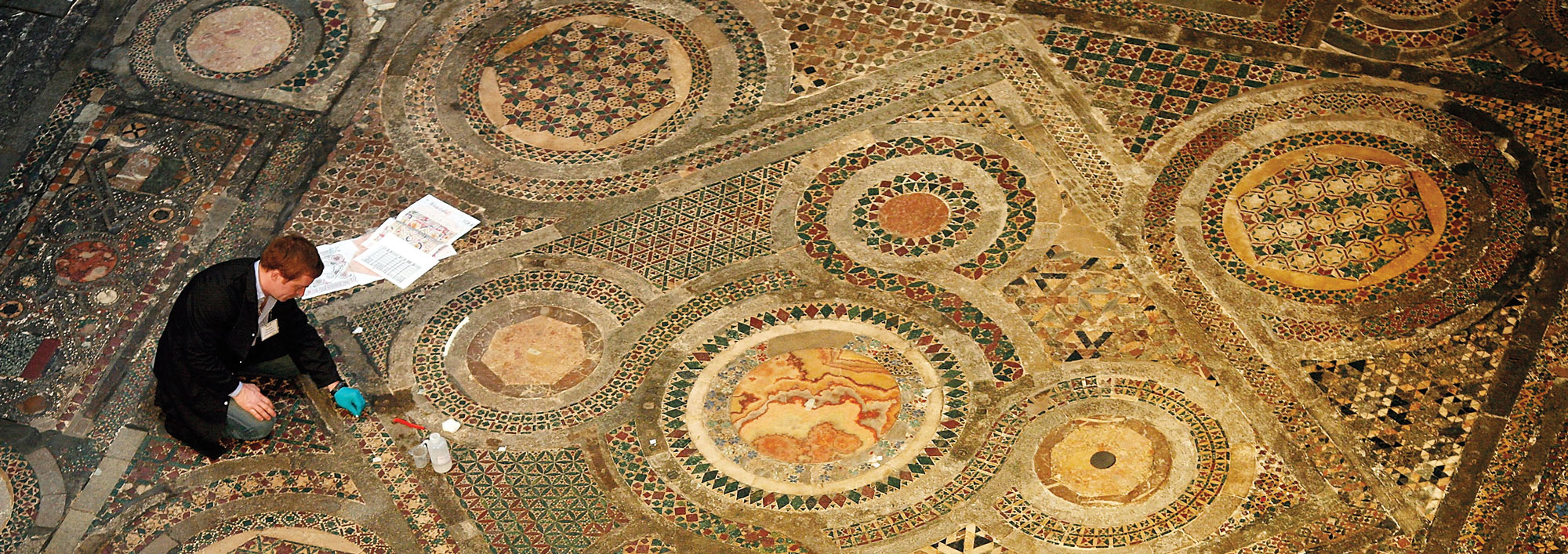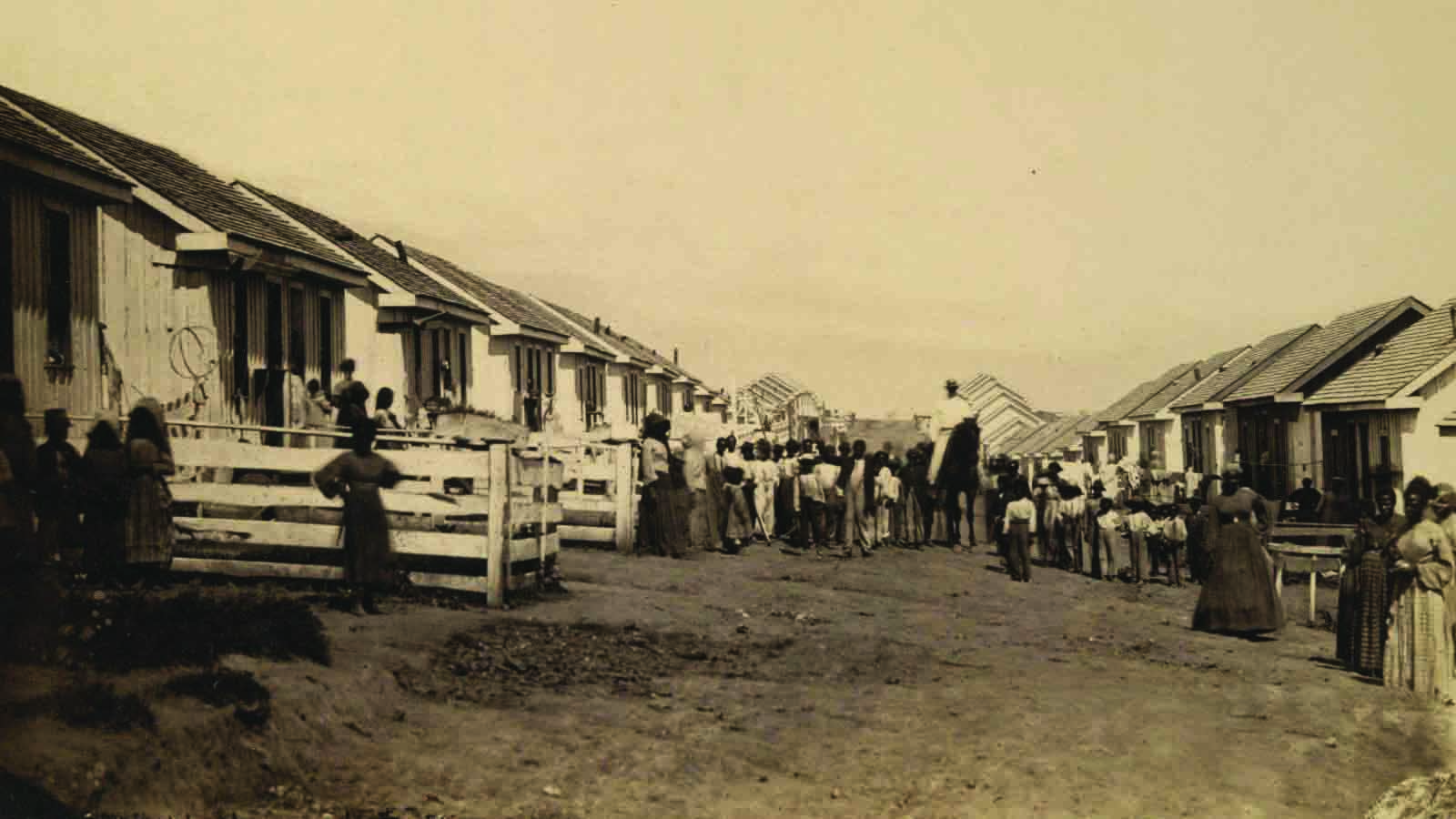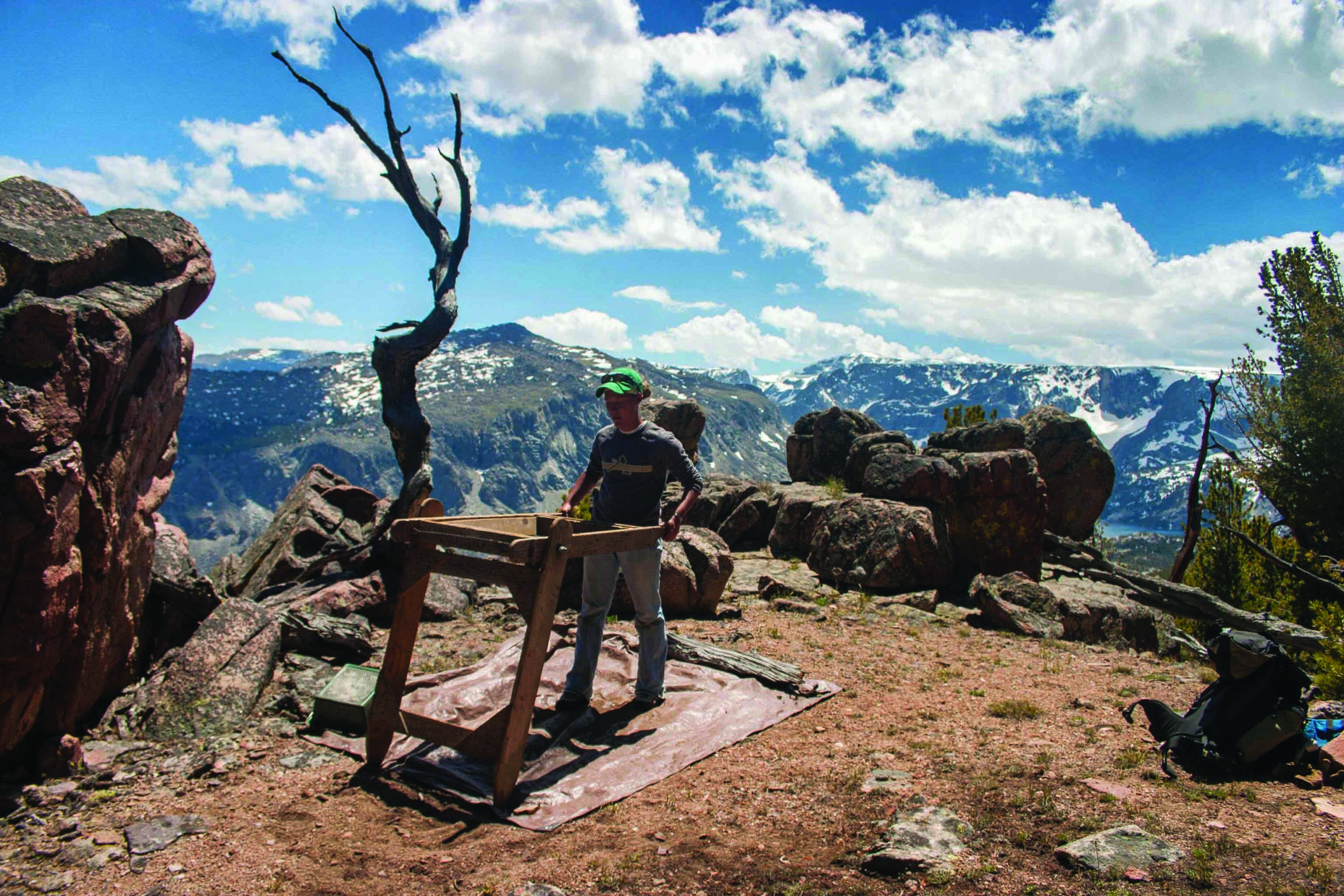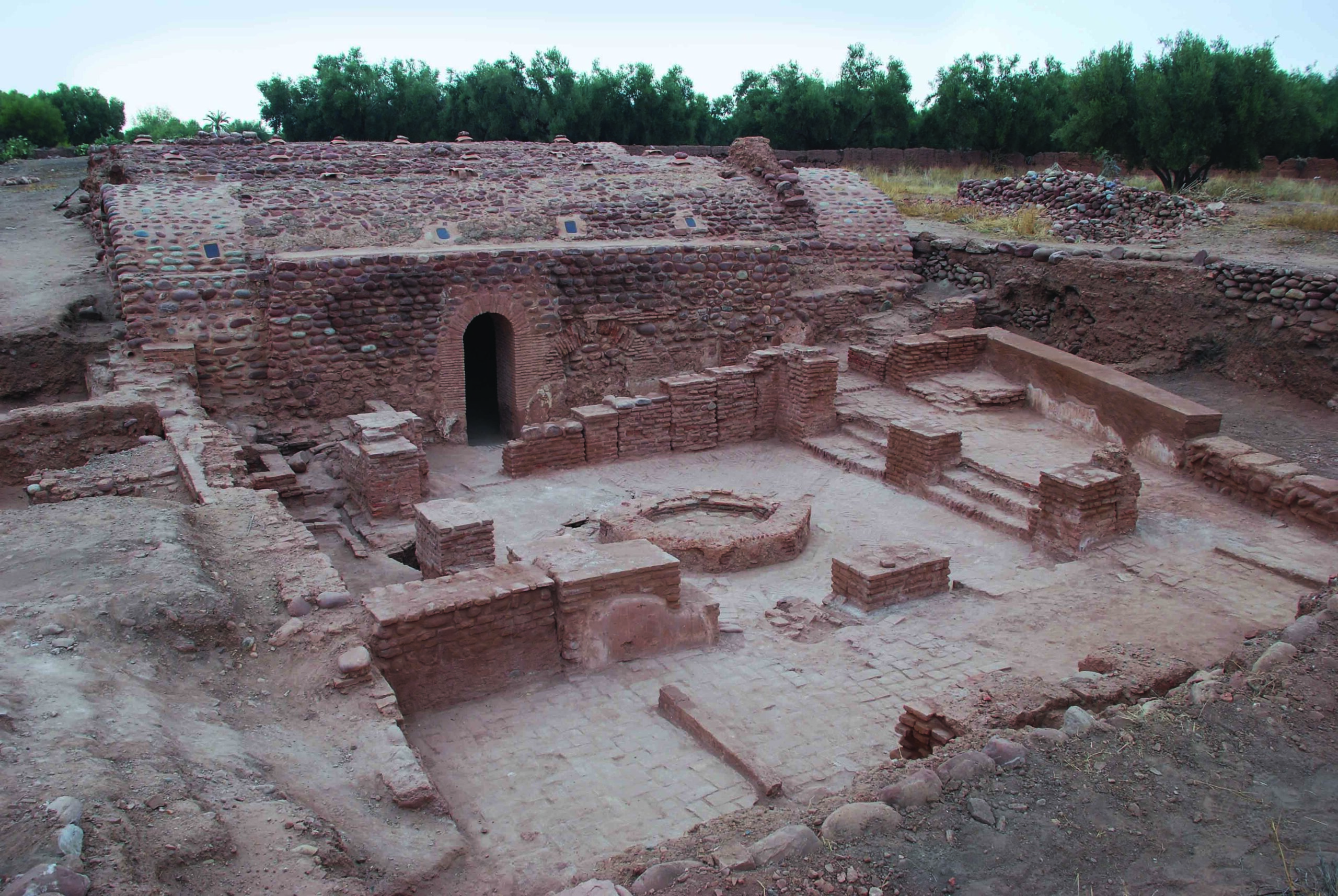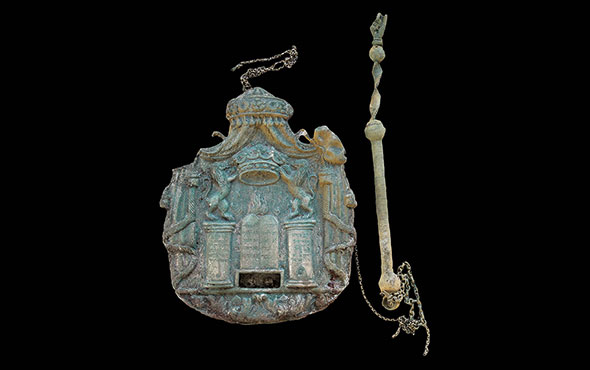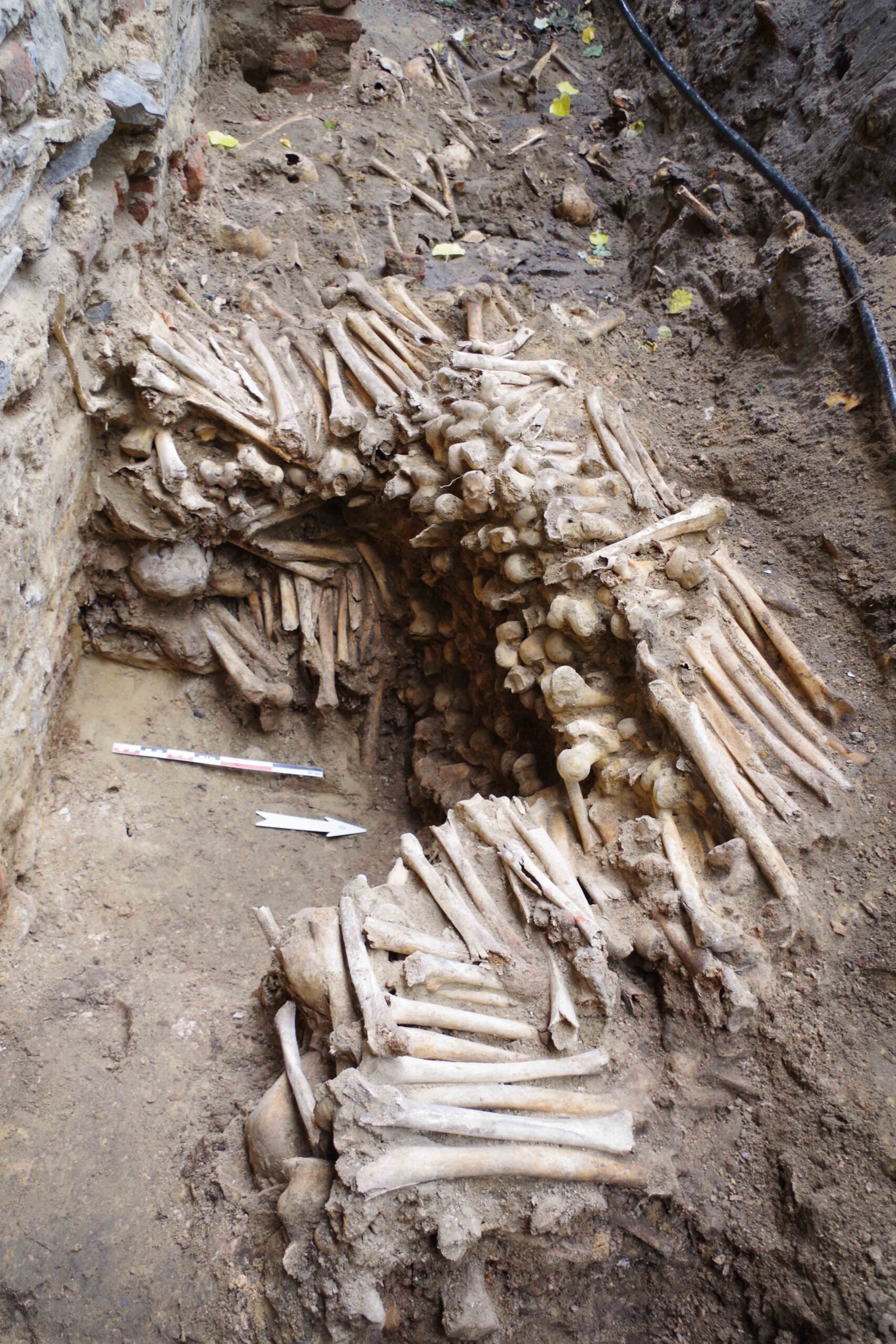
Nine walls made up entirely of human bones have been uncovered by archaeologists at the site of the former Church of Saint John, now Saint Bavo’s Cathedral, in Ghent, Belgium. Most of the remains have been radiocarbon dated to the second half of the fifteenth century, but the bones were likely not used for construction projects until sometime in the seventeenth or eighteenth century, when a section of the church cemetery was cleared to make room for new burials. “We have more than a thousand skeletons in all from in and around the church site,” says project leader Janiek De Gryse of Ruben Willaert Restoration & Archeology/Decoration, “but these walls tell us something about the practice of clearing churchyards.” She adds that future researchers will investigate whether the layering of bones was undertaken purely due to space limitations, or whether the walls may have held religious or spiritual significance.



